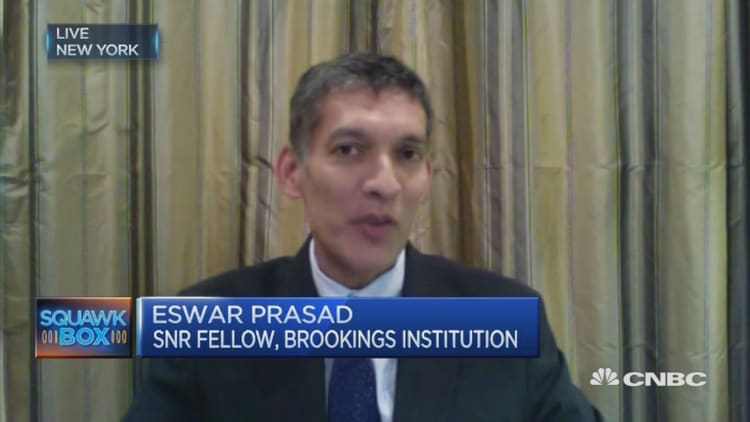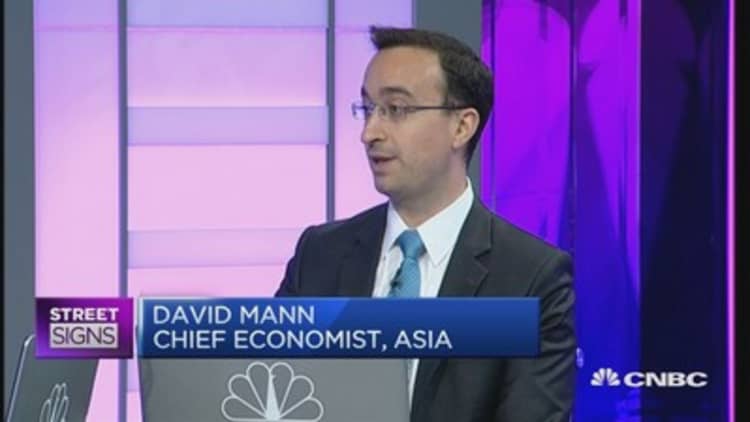China has unveiled new plans to partially privatize the country's industrial champions, including the state railway system and a weapon maker, but concerns remain whether Beijing is seeking a real change in its bloated state sector or just using a new trick to lure money to fill a financial black hole.
China Railway Corporation, which runs the world's largest high-speed railway network, said it would spin off some businesses to allow private investors to participate, following a "mixed ownership reform" plan announced by China North Industries Group, the country's key military equipment maker.
While these assets were largely off-limits to private investors before, Beijing also made it clear that the controlling power of China's industrial conglomerates would be firmly in the hands of the government, or the ruling Communist Party.
The latest 'reforms' are not intended to 'weaken state-owned enterprises' or 'to seek a complete privatization'", Ji Xiaonan, the supervisory board chairman of big state companies at the State-Owned Asset Supervision and Administration Commission (SASAC) wrote in an article in People's Daily yesterday.

Instead, China aimed to improve its state firms so they could better serve China's socialist system and facilitate the "rejuvenation of the Chinese nation", Ji wrote.
Unlike the former Soviet Union, China has adopted a slow process to revitalize its state sector. After three decades of push and pull, state enterprises, with combined assets of 130 trillion yuan (HK$146 trillion), now provide only part of the jobs and tax revenues in the country, although they are still coddled with cheap credit from the banking system and other preferential policies.
"China will make larger efforts this year to induce private investors to participate in the restructuring of state-owned enterprises," said Li Jin, chief researcher at the China Enterprise Research Institute.
More from the South China Morning Post :
Belt and Road set to deliver significant boost to China Railway
Old new hand in the driver's seat at China's railway giant
Beijing's spending promises fail to help state-run building firms
Li said the railway industry was opening up to private money. The Hangzhou-Taizhou railway line in eastern Zhejiang province, for instance, will get 51 per cent of its funding from private investors, he noted.
"[Beijing] will soon open up other state monopolies, such as airlines and telecom, to woo investor interests."
Such a move might be appealing to private investors who have long been kept away from the country's core sectors of energy, telecoms, aviation and financial services.

However, even a minor stake in a normal state-owned enterprise would cost dearly, making it beyond reach for most investors and a game only for a few well-connected and deep-pocketed tycoons. For instance, when Chinese oil giant Sinopec sold a 30 per cent stake in its marketing arm to a consortium of investors in 2014, the price tag was US$17 billion, and most of the new investors were state-backed financial groups.
For China Railway, the behemoth that is now partly available for sale, it is in charge of annual investment of more than 800 billion yuan and has a mission to stabilize the world's No 2 economy. The company, formally the Ministry of Railways, has a debt that tops 4 trillion yuan. Its efforts to diversify its financing channels, now mainly bank loans and bond sales, have seen little progress.
China's private investors are wary about returns and investment safety, which is why private investment grew only 3.1 per cent in the first 11 months of last year, versus national growth of 8.3 per cent.
Ji at SASAC also wrote that "mixed ownership reform, market-oriented hiring and other efficiency related reforms" could not be accomplished easily.
At China North Industries Group, the assets to be made available for private investors are in civil operations, with the group's military business off the table.
Meanwhile, while China was trying to shift focus from size to efficiency in state companies, Beijing was expected to keep encouraging mergers among state players, said Zhou Hao, the senior emerging markets economist at Commerzbank in Singapore.
China now has 102 state companies under Beijing's direct administration after years of government-appointed mergers to create bigger players, including the joining of two huge steelmakers last year.

